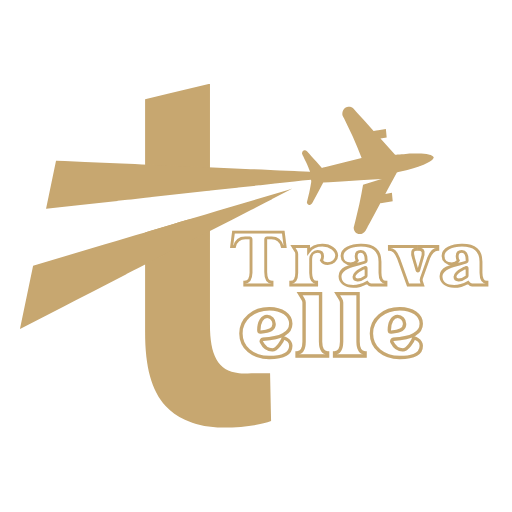Picture this: You’re sipping coconut water on a beach in Thailand while your laptop earns you enough cash to fund the next three months of adventures. Sounds too good to be true? Well, I’ve got news for you – thousands of people are already living this dream, and honestly, it’s not as complicated as you might think.
I’ve been bouncing around the globe for the past five years, and let me tell you, figuring out how to make money while traveling was the best decision I ever made. Sure, I made some rookie mistakes along the way (like trying to run a consulting business from a hammock – spoiler alert: that didn’t work out :)), but the freedom? Totally worth it.
Remote Work: Your Gateway to Location Independence
Let’s start with the obvious one – remote work. If you’ve got skills that translate to a computer screen, you’re already halfway there. The pandemic basically forced companies to realize that yes, people can actually be productive outside of a stuffy office cubicle.

Freelancing Your Way Around the World
Freelancing is probably the most straightforward path to travel funding. Writing, graphic design, web development, social media management – these skills are in demand everywhere, and clients don’t really care if you’re working from New York or Bali.
Here’s what I learned the hard way: start building your freelance portfolio before you book that first flight. You don’t want to be scrambling for clients while jet-lagged in a foreign country. Trust me on this one.
Popular freelancing platforms include:
- Upwork – Great for beginners, though the competition can be fierce
- Fiverr – Perfect for specific, skill-based services
- Freelancer.com – Solid option with diverse project types
- Toptal – Higher-end clients, but you need serious skills to get accepted
The key? Specialize in something. Being a “general freelancer” is like being a Swiss Army knife – useful, but not particularly memorable.
Landing a Full-Time Remote Job
Maybe freelancing sounds too unpredictable for your taste? Fair enough. Full-time remote positions offer that sweet, sweet stability while still giving you the freedom to work from anywhere with decent Wi-Fi.
Tech companies are obviously the low-hanging fruit here, but don’t overlook industries like marketing, customer service, or even finance. I know accountants who’ve managed to negotiate remote work arrangements – if they can do it, so can you.
Pro tip: When job hunting, focus on companies that were remote-friendly before 2020. They’ve got their systems figured out and won’t constantly question whether you’re actually working.
Creating Digital Products and Online Businesses

Want to know what’s cooler than trading time for money? Creating something once and selling it repeatedly. Digital products are the holy grail of location-independent income.
Online Courses and Educational Content
Got expertise in something? Package it up and sell it. The online learning market is absolutely booming, and people are willing to pay good money for knowledge that can improve their lives or careers.
I started creating courses about freelancing (meta, I know), and within six months, they were generating enough passive income to cover my accommodation costs in most countries. Not bad for recording myself talking into a webcam, right?
Platforms to consider:
- Teachable – User-friendly with good marketing tools
- Udemy – Massive audience, but you’ll compete with thousands of other courses
- Skillshare – Great for creative skills
- Your own website – More control, but you’ll need to handle the marketing yourself
E-commerce and Dropshipping
Okay, I’ll be honest – dropshipping gets a bad rap, and some of it’s deserved. But when done ethically and with genuine value, it can fund some serious travel adventures.
The trick is finding products you actually believe in and target audiences you understand. Don’t just chase trends – build something sustainable.
Some travelers I know have built successful e-commerce businesses around:
- Travel gear and accessories
- Digital planning tools
- Specialized hobby equipment
- Educational materials for niche skills
Content Creation and Monetization

Ever wonder why so many travelers seem to be constantly taking photos and videos? They’re not just documenting memories – they’re building businesses.
YouTube, Instagram, TikTok, and blogs can all generate income through various channels:
- Sponsorships and brand partnerships
- Affiliate marketing (promoting products you actually use)
- Ad revenue from platforms
- Selling your own products or services
But here’s the reality check: building a following takes time, and the competition is intense. You’ll need to bring something unique to the table and be incredibly consistent.
Teaching and Tutoring Opportunities
Teaching English abroad used to require showing up in person, but the online tutoring boom has changed everything. Platforms like iTalki, Preply, and Cambly let you teach languages from anywhere with a decent internet connection.
Online Language Tutoring
If English is your native language (or you’re fluent in another in-demand language), this could be your ticket to travel funding. The pay varies wildly – anywhere from $8 to $50+ per hour depending on your qualifications and the platform.
What you’ll need:
- TEFL certification (not always required but definitely helpful)
- Reliable internet connection (this cannot be overstated)
- Patience – teaching adults can be surprisingly challenging
- Basic tech skills for managing online classrooms
Specialized Subject Tutoring
Got expertise in math, science, or other academic subjects? Online tutoring in specialized fields often pays better than language teaching. I know a guy who funds his Southeast Asian adventures entirely through online calculus tutoring – talk about making your high school math teacher proud!
Location-Specific Income Opportunities
Sometimes the best opportunities are literally where you’re standing. Each destination offers unique ways to make money, especially if you’re willing to think creatively.
Tourism and Hospitality Work
Hostels, tour companies, and dive shops often hire travelers for short-term work. The pay might not be amazing, but you’ll often get accommodation included, which can significantly stretch your budget.
Popular options include:
- Hostel reception work – Usually includes free accommodation
- Tour guiding – Great if you’re outgoing and love sharing knowledge
- Dive instruction – Requires certification but can be incredibly rewarding
- Seasonal work (ski resorts, summer camps, etc.)
Photography and Content Services

Travel photography skills can translate to real income opportunities. Restaurants, hotels, and local businesses often need quality photos for their social media and websites.
I’ve made decent side income by:
- Shooting content for local restaurants
- Taking professional photos for other travelers
- Creating stock photography during my travels
- Offering social media services to local businesses
Managing Finances and Logistics
Making money while traveling is only half the battle – managing that money efficiently is equally important.
Banking and Payment Solutions
You’ll need banking solutions that work internationally without destroying you with fees. Revolut, Wise (formerly TransferWise), and Charles Schwab are popular among digital nomads for good reasons.
Key features to look for:
- No foreign transaction fees
- Competitive exchange rates
- Global ATM access
- Multi-currency accounts
- Mobile app functionality (because you’ll be managing everything from your phone)
Tax Considerations
This is where things get complicated, and I’m definitely not a tax advisor (FYI, always consult a professional). But here’s what I’ve learned: keeping detailed records of your income and expenses while traveling can save you major headaches later.
Many countries have foreign earned income exclusions and digital nomad tax programs – research what applies to your situation before you find yourself in hot water with the tax authorities.
Budgeting for Nomadic Life
Traditional budgeting advice doesn’t always apply when your office is a beach cafe and your commute involves international flights. You’ll need to account for:
- Irregular income (especially if you’re freelancing)
- Currency fluctuations
- Higher transportation costs
- Visa and documentation fees
- Emergency funds for unexpected situations (trust me, they will happen)
Building Long-term Sustainability
The Instagram-perfect nomad lifestyle looks amazing, but burnout is real. Building sustainable income streams while traveling requires strategic thinking beyond just “make money and go places.”
Diversifying Income Streams
Never rely on a single income source while traveling. I learned this lesson when a major client unexpectedly ended our contract while I was in the middle of nowhere in rural Vietnam. Having multiple revenue streams saved me from cutting my trip short.
Aim for a mix of:
- Active income (trading time for money)
- Passive income (money that comes in with minimal ongoing effort)
- Project-based work (larger payments for specific deliverables)
- Recurring income (subscriptions, retainer clients, etc.)
Investing in Your Future Self
While it’s tempting to spend every dollar on experiences and adventures, investing some of your travel earnings sets you up for long-term success. Whether that’s building an emergency fund, contributing to retirement accounts, or investing in skills development – future you will thank present you.
Consider allocating portions of your income to:
- Emergency fund (aim for 6 months of expenses minimum)
- Skill development (courses, certifications, equipment)
- Long-term investments (stocks, bonds, real estate)
- Business development (building systems for passive income)
Common Pitfalls and How to Avoid Them
Let me save you from some of the mistakes I’ve made (and watched countless others make) along the way.
Underestimating the Challenges
Social media makes nomadic life look like one long vacation, but it’s still work. You’ll deal with unreliable internet, time zone confusion, and the challenge of maintaining professional relationships while constantly moving.
Reality check items:
- Internet reliability varies dramatically by location
- Time zones can make client communication complicated
- Work-life balance gets blurry when your bedroom is your office
- Loneliness is real, especially when working solo
Poor Financial Planning
I’ve seen too many aspiring nomads burn through their savings in the first few months because they underestimated costs or overestimated how quickly they’d generate income.
Plan for:
- Slower initial income growth than expected
- Higher costs in popular nomad destinations
- Unexpected expenses (visa runs, medical issues, equipment replacement)
- Seasonal income fluctuations
Making It Happen: Your Action Plan

Alright, enough theory – let’s talk about actually making this happen. You don’t need to quit your job tomorrow and book a one-way ticket to Thailand (though if that’s your style, more power to you :/).
Phase 1: Skill Development and Preparation
Start building your remote income streams before you travel. This gives you time to:
- Test different income sources and see what works for you
- Build up savings for your initial travel period
- Develop systems for managing work while on the road
- Network with other nomads and learn from their experiences
Phase 2: Testing the Waters
Consider starting with shorter trips or working from different cities in your home country. This lets you practice managing work while mobile without the added complexity of international travel.
Phase 3: Taking the Leap
When you’re ready for long-term travel, start with destinations that are nomad-friendly and have good infrastructure. Popular starting points include:
- Lisbon, Portugal – Great community and infrastructure
- Canggu, Bali – Established nomad scene
- Mexico City – Affordable with excellent connectivity
- Chiang Mai, Thailand – Classic nomad destination with low costs
Related Post: Best Countries for Digital Nomads in 2025
IMO, starting somewhere with an established nomad community gives you built-in support and networking opportunities.
The dream of making money while traveling isn’t just for digital marketing gurus and tech bros anymore. With some planning, realistic expectations, and willingness to adapt, you can build a location-independent income that funds your adventures.
Will it be challenging? Absolutely. Will you make mistakes? Definitely (I certainly did). But will it be worth it when you’re earning money while watching the sunset from a new country every few months? You bet.
The world is waiting, and thanks to technology, you don’t have to choose between building a career and exploring it. So what are you waiting for? Your nomadic adventure starts with that first step – or in this case, that first client, course, or income stream.
Now stop reading about it and start building it. The only thing standing between you and that laptop-on-the-beach lifestyle is action.










